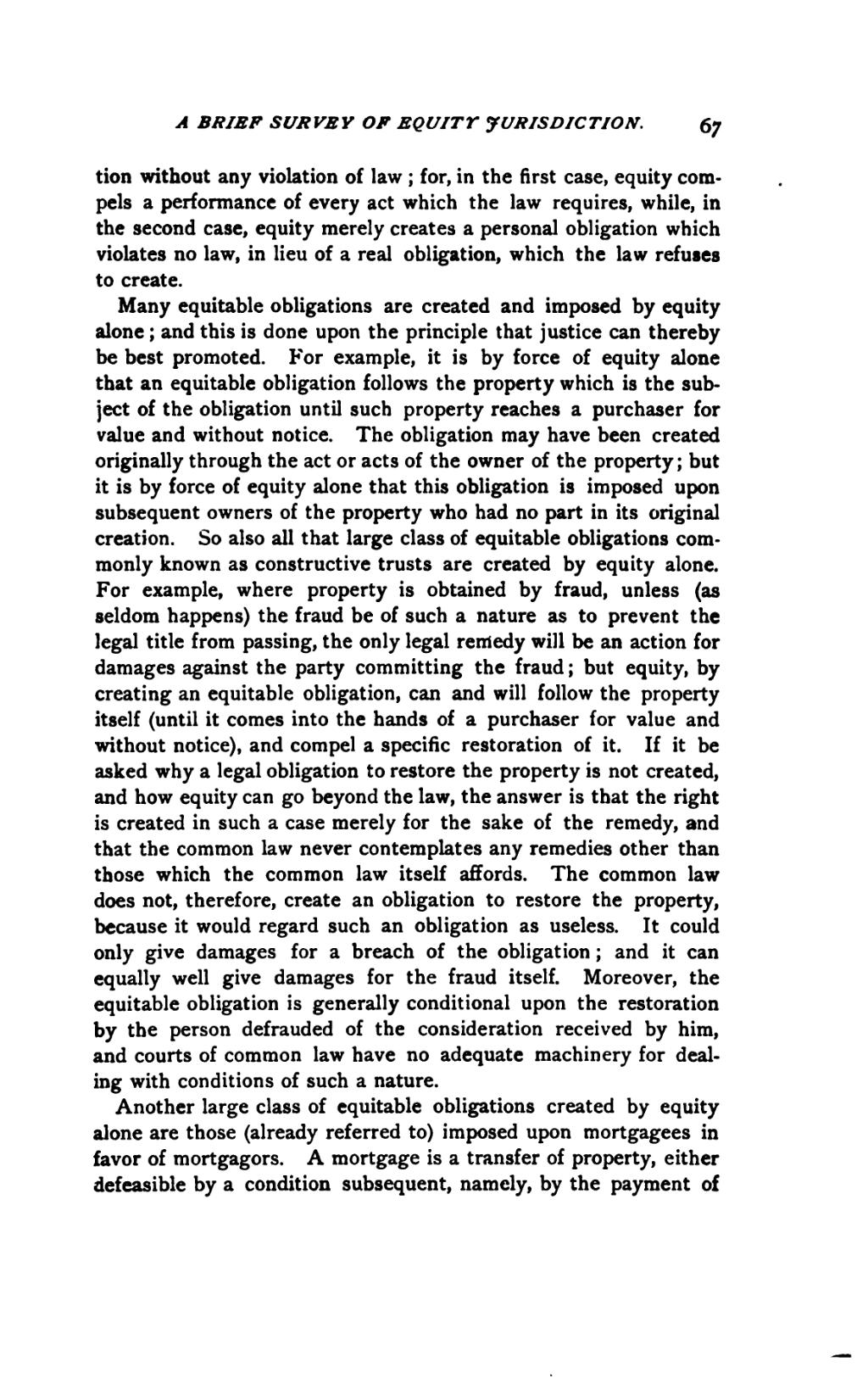tion without any violation of law; for, in the first case, equity compels a performance of every act which the law requires, while, in the second case, equity merely creates a personal obligation which violates no law, in lieu of a real obligation, which the law refuses to create.
Many equitable obligations are created and imposed by equity alone; and this is done upon the principle that justice can thereby be best promoted. For example, it is by force of equity alone that an equitable obligation follows the property which is the subject of the obligation until such property reaches a purchaser for value and without notice. The obligation may have been created originally through the act or acts of the owner of the property; but it is by force of equity alone that this obligation is imposed upon subsequent owners of the property who had no part in its original creation. So also all that large class of equitable obligations commonly known as constructive trusts are created by equity alone. For example, where property is obtained by fraud, unless (as seldom happens) the fraud be of such a nature as to prevent the legal title from passing, the only legal remedy will be an action for damages against the party committing the fraud; but equity, by creating an equitable obligation, can and will follow the property itself (until it comes into the hands of a purchaser for value and without notice), and compel a specific restoration of it. If it be asked why a legal obligation to restore the property is not created, and how equity can go beyond the law, the answer is that the right is created in such a case merely for the sake of the remedy, and that the common law never contemplates any remedies other than those which the common law itself affords. The common law does not, therefore, create an obligation to restore the property, because it would regard such an obligation as useless. It could only give damages for a breach of the obligation; and it can equally well give damages for the fraud itself. Moreover, the equitable obligation is generally conditional upon the restoration by the person defrauded of the consideration received by him, and courts of common law have no adequate machinery for dealing with conditions of such a nature.
Another large class of equitable obligations created by equity alone are those (already referred to) imposed upon mortgagees in favor of mortgagors. A mortgage is a transfer of property, either defeasible by a condition subsequent, namely, by the payment of
